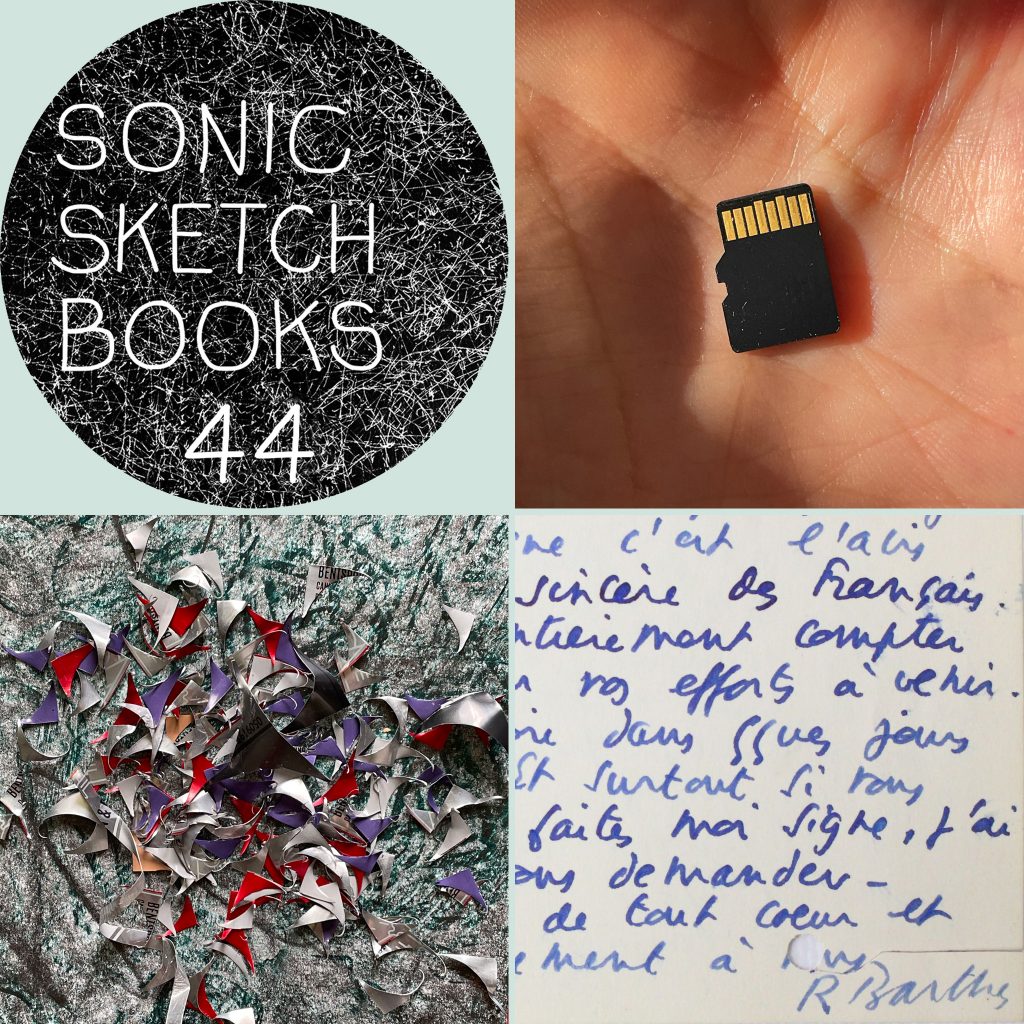
release date: 02 october 2021
Of late I’ve been getting to know the MakeNoise Morphagene modular synthesis device. The User Manual describes it as being “informed by the worlds of Musique Concrete … and Microsound … a set of tools for creative synthesis … for the creation of new musical form and content, previously unimagined.”
It enables extreme manipulation of recorded sound using a syncretic paradigm of delimited analogue tape splicing exaggerated by the granular control capabilities of digital software. That is, infinitely variable fragmentation and reassembly of sonic units discretised down to improbable fractions of seconds duration, organised and disorganised in complex systems activated by tiny variations in voltage control signals. Unscripted, possibly unscriptable combinations and sequences of sonic fragments drifting into basins of attraction, pattern teasing and spilling into unpredictably chaotic cascades.
As source material for this most aleatoric composition, I made new sample recordings using five empty aluminium beer cans. At first intact then gradually reduced to tiny pieces, I coaxed sounds from each stage of their disintegration by tapping, dropping, rolling, shaking, etc.
Once ingested into the Morphagenes random access memory, combinations of cables carrying tiny voltage variations were experimented with and outcomes of interest recorded to my trusty Tascam DR-100 MKIII. A series of 20 minute sessions was captured and this podcast episode is built from excerpts I’ve selectively arranged.
The resulting composition paradoxically synthesises interruption as flow, using fragment as method to simultaneously generate and disrupt an unusual listening experience – its a kind of aural synecdoche or fractal in which any part effectively represents the whole.
Back in the 20th century, French essayist and semiotician Roland Barthes explored and expounded the fragment as technique, content and political strategy.
For Barthes, fragments held the potential to manifest escape from the tyranny of mundane meaning imposed by so-called ‘common sense’ and received wisdom. He characterised his writing, and intellectual works as ‘a circle of fragments’.
A quote from 1977 exemplifies : “To write by fragments: the fragments are then so many stones on the perimeter of a circle: I spread myself around: my whole little universe in crumbs; at the center, what?”
